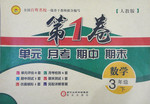I was tired and hungry after a long day of work. When I walked into the living-room, my 12-year-old son looked up at me and said, “I _1_ you.” I did not 2_____ what to say, and I just stood there, looking __3__ at him. My first __4__ was that he 5_____need help with his homework. Then I asked, “What was that all 6_____?”
“Nothing,” he said, “My teacher said we should tell our parents we love them and 7____ what they say.”
The next day I called his teacher to _8_ more about what my son said and how the other parents had reacted( 反应 ). “Most of the fathers had the __9__ response as you did,” the teacher said, ”When I first __10___ that we try this, I asked the children __11__ they thought their parents 12_____ say. Some of them thought their parents would have heart trouble.”
Then the teacher ___13__ , “ I want my students to know that feeling love is an important part of __14____. I’m trying to tell them it’s too bad that we don’t express (表达) our feelings. A boy __15___ tell his father or mother he loves him.” The teacher understands that sometimes it is__16___ for some of us to say something that is good for us to say.
That evening when my son_17___ to me, I took him in my arms and held on for an __18_ moment, saying, “Hey, I love you, 19_____.” I don’t know if saying that made __20___ of us healthier, but it did feel pretty good.
1. A. hate B. love C. like D. enjoy
2. A. realize B. recognize C. know D. find
3. A .away B. for C. down D. on
4. A . thought B. meaning C. news D. reason
5. A. must B. should C. could D. would
6. A. for B. with C. around D. about
7. A. test B. know C. understand D. see
8. A . talk to B. chat with C. find out D. do with
9. A. same B. different C. usual D. unusual
10. A. allowed B. agreed C. planned D. suggested
11. A. how B. whether C. when D. what
12 A. would B. will C. could D. can
13. A. explained B. prepared C. informed D. developed
14. A. study B. work C. health D. body
15. A. might B. can C. should D. need
16. A. easy B. difficult C. crazy D. silly
17. A. turned B. shouted C. went D. came
18. A. extra B. ordinary C. interesting D. important
19. A. either B. too C. also D. again
20. A. all B. either C. none D. neither

 第1卷单元月考期中期末系列答案
第1卷单元月考期中期末系列答案